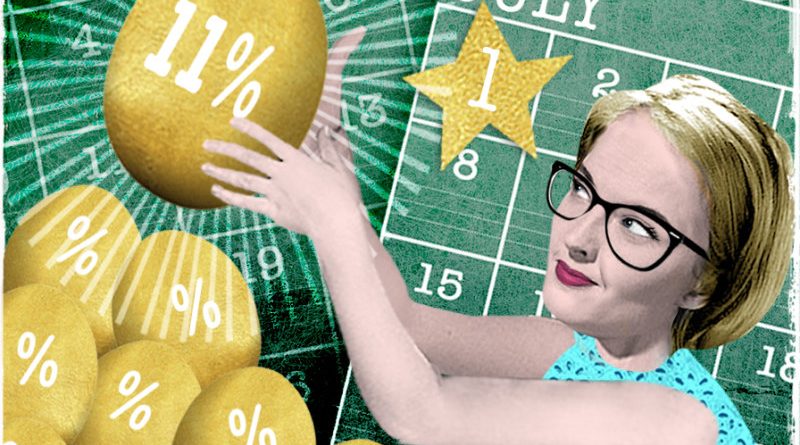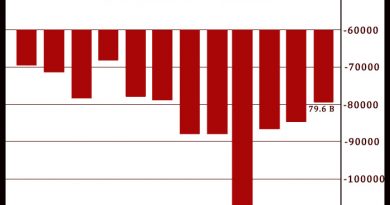How to avoid getting a super-sized pay cut this week
Save articles for later
Add articles to your saved list and come back to them any time.
I’ve spent years trying to convince people to care more about their superannuation, and I quickly realised it’s a very challenging task. Despite being the key to a fulfilling retirement, Australians don’t prioritise their superannuation as much as they should. It’s time that changed.
Super is arguably the most attractive tax structure in Australia. It boasts a 15 per cent tax rate, meaning if you earn between $45,001 – $120,000, the value of $10,000 inside super is $8500 post-tax, compared to $6750 if it landed in your bank account – a difference of 21 per cent.
Victoria Devine is the host of Australia’s number one finance podcast, She’s on the Money, and this masthead’s new Sunday Money columnist.Credit: Simon Schluter
As of yesterday, the superannuation guarantee has increased from 10.5 per cent of ordinary earnings to 11 per cent which aims to take some pressure off the age pension and help Australians improve their outcomes at retirement.
However, it’s key we keep our fingers on the pulse while this change is being implemented because if you’ve negotiated your salary to include superannuation contributions in your total package, there’s a chance your employer is planning to cut your take-home pay to fund this superannuation increase.
If you’re thinking that these changes are insignificant, think again. Superannuation contribution rates have been increasing by half a per cent each financial year since July 1, 2021 and will continue to do so until the rate reaches 12 per cent on July 1, 2025.
These changes add up, and while you might not notice them when they’re implemented each year, from little things big things grow. An additional 2.5 per cent being contributed to your superannuation over the long term will have a significant impact on your ability to achieve a comfortable retirement.
Superannuation is your money, so taking control of it now and giving it the attention it deserves is paramount.
While it’s fantastic that these changes should put employees in a better financial position in retirement, not all businesses have the capacity to contribute an additional 0.5 per cent to employees’ salaries. In addition, many are facing the challenge of balancing increased superannuation obligations with the pressure of rising costs of goods and services.
On the flip side, the potential impact on employees of a reduced pay packet should not be underestimated given the rising cost of living. It’s crucial to understand how this change may affect an individual’s overall financial situation and retirement savings.
The Association of Superannuation Funds of Australia suggests that the balance of a combined couple’s fund should be $640,000 at the time of retirement and $540,000 for singles. I don’t necessarily agree with this. If you have $640,000 invested at a 5 per cent return, that’s only $32,000 a year. To me, that doesn’t feel like enough for two people to live on in a year.
Perhaps if you owned your home outright, had other investments or extremely low lifestyle costs it would suffice, but I’m confident many of us would agree this doesn’t feel like enough. Most of the couples I speak to say they’d like to have $100,000 coming in a year, which would require a super balance of $2 million. You can see that, while small, these superannuation increases really help to contribute towards the larger goal of retiring comfortably.
Employers are legally obligated to contribute a minimum percentage (as of today, 11 per cent) of an employee’s ordinary time earnings to their superannuation fund – and this is known as the superannuation guarantee (or SG as it often appears on payslips).
As a retired financial adviser and the host of Australia’s largest finance podcast, I’ve spent many years urging employees to be more aware of their rights and entitlements when it comes to super.
The Australian Taxation Office provides comprehensive information on superannuation regulations, ensuring employees have access to the necessary resources to protect their financial interests. While often a little, well, bland, this is a fantastic resource to start when it comes to understanding where you’re standing.
As of yesterday, the superannuation guarantee has increased from 10.5 per cent of ordinary earnings to 11 per cent.Credit: Dionne Gain
So what can we do if you’re facing a take-home pay cut? Proactive communication with your employer is essential. Though it can feel overwhelming, initiating open and honest conversations about these changes can help you gain a clearer understanding of how it will affect your pay and overall financial situation.
While this might be the first time you’ve thought about this topic, it’s one that has been buzzing around my community for months and many have negotiated with their employer an increase to their total remuneration package instead of it coming out of their take-home pay – proof that it definitely can be done and that many employers are open to the conversation.
It’s so important to care about your superannuation, what your contributions look like and what you’re working towards – it’s very likely going to be one of the biggest assets you own once you reach retirement.
I’ve said it time and time again: superannuation is your money, and many of us don’t have the capacity to save or invest 11 per cent outside this environment for our retirement, so taking control of it now and giving it the attention it deserves is paramount.
By staying informed and proactive, you can work towards a secure retirement and a bright financial future.
Victoria Devine is an award-winning retired financial adviser, best-selling author, and host of Australia’s number one finance podcast, She’s on the Money. Victoria is also the founder and co-director of Zella Money.
- Advice given in this article is general in nature and is not intended to influence readers’ decisions about investing or financial products. They should always seek their own professional advice that takes into account their own personal circumstances before making any financial decisions.
For expert tips on how to save, invest and make the most of your money, delivered to your inbox every Sunday, sign up for our Real Money newsletter here.
Most Viewed in Money
From our partners
Source: Read Full Article




